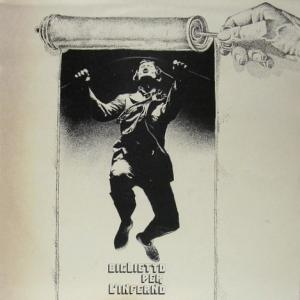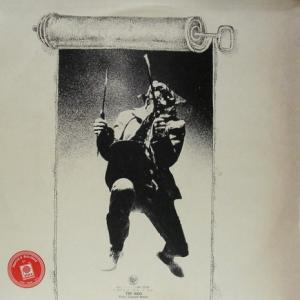Biglietto Per L'Inferno


Artist:
Biglietto Per L'Inferno
Label:
Trident (2), Trident (2)
Catalog#:
TRI 1005, TRI. 1005
Format:
Vinyl
Country:
Italy
Released:
1974
| Tracklist | |||
| A1 | Ansia | 4:12 | |
| Notes: |
Biglietto Per L'Inferno - Written-By |
||
| A2 | Confessione | 6:30 | |
| Notes: |
G.C. Cappellini - Written-By |
||
| A3 | Una Strana Regina | 6:12 | |
| Notes: |
Biglietto Per L'Inferno - Written-By |
||
| B1 | Il Nevare | 4:37 | |
| Notes: |
G.C. Cappellini - Written-By |
||
| B2 | L'Amico Suicida | 14:23 | |
| Notes: |
Biglietto Per L'Inferno - Written-By |
||
Credits
Caesar Monti - Photography By
Notes
First cat.nr on cover, second on label.
Strawberry Bricks Entry:
Formed in 1972 in Lecco, Lombardy, Biglietto Per L'Inferno ("Ticket to Hell") was another Italian band that released one classic album before breaking up. The band was discovered at a music festival, and subsequently offered a contract with the Trident label, home to The Trip and Semiramis. The band centered around the keyboard talents of two Giuseppes, "Baffo" Banfi and Cossa, plus guitarist Marco Mainetti, vocalist and flautist Claudio Canali and a rhythm section of bassist Fausto Branchini and drummer Mauro Gnecchi. Their self-titled album, Biglietto Per L'Inferno, is another classic of Rock progressivo italiano, mixing heavy rock with symphonic overtures. "Ansia" ("Anxiety") gently opens the record, revealing a heady mix of organ and piano. The dual keyboards of Banfi and Cossa certainly charge the sonic palette, but the histrionics of guitarist Mainetti also have a large presence on the album. "Confessione" offers a bit of VdGG, and as the title suggests, a dark subject matter; while the track's backing chorus is reminiscent of Lucifer's Friend's voicings. "Una strana Regina" is a more introspective composition, while "Il Nevare" is a no-holds-barred rocker. The album closes with "L'Amico Suicida," another well-constructed number. Through its 14-plus minutes, the composition is full of suspense and surprises; and, of course, a splendid finale. Released in 1974, the album was produced by Maurizio Salvadori, who worked with such diverse artists as Dedalus, The Trip and Garybaldi. A second album produced by Eugenia Finardi was reputedly in the can; but with the Trident label folding, it wouldn't see release until decades later; the band subsequently broke up. Keyboardist Banfi would forge a solo career in the late 70s, offering a few albums of electronic music for Klaus Schulze's Innovative Communication label.

